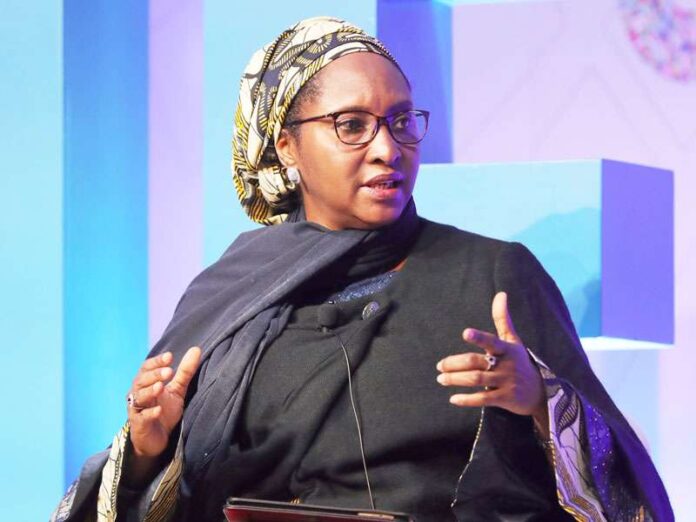The Minister Of Finance, Budget And National Planning ,Zainab Ahmed, said that the Federal Government spent a total of N5.24 trillion on debt servicing between January and November 2022, out of its N6.5 trillion retained revenue for the same period.
The minister also revealed that only N3.36 trillion was earmarked for fuel subsidy in Nigeria’s 2023 budget.
She disclosed this during a Public Presentation and breakdown of the 2023 Appropriation Act earlier on Wednesday in Abuja.
The spend puts the country’s debt service-to-revenue ratio at 80.6 per cent for the period under review, a figure far above World Bank’s suggested 22.5 per cent for low-income countries like Nigeria.
Speaking at the event, Ahmed said the Federal Government’s share of oil revenues generated within the period was N586.71 billion (representing 35.7 percent performance), while non-oil tax revenues totalled N2.09 trillion — a performance of 123.3 percent.
She said companies’ income tax (CIT) and value added tax (VAT) collections were N1.08 trillion and N295.2 billion, representing 158.6 percent and 124.3 percent of their respective targets.
According to Ahmed, customs collections (comprising import duties, excise, fees, and special levies) exceeded the target by N15.42 billion (i.e, 102 percent performance).
She added that other revenues amounted to N3.72 trillion, of which independent revenue was N1.32 trillion.
On the expenditure side, the minister said as at the end of November 2022, the government had spent a total of N12.87 trillion, out of which N1.88 trillion was released for capital expenditure.
On funding sources for the 2023 budget, Ahmed said 22 percent of projected revenues will come from oil-related sources while 78 percent will be earned from non-oil sources.
She said the overall budget deficit for the 2023 budget is N11.34 trillion, representing 5.03 percent of the country’s gross domestic product (GDP).
The minister further explained that the budget deficit would be financed mainly by borrowings, noting that N7.04 trillion would be borrowed from domestic sources, N1.76 trillion from foreign sources, N1.77 billion from multilateral and bilateral loan drawdowns, while privatisation proceeds would provide N206.18 billion.
She added that the gap between the revenue plus additional financing, and total expenditure, amounting to N553.46 billion is expected to be financed by additional revenue from spectrum fees and tax on the maritime sector.
During her presentation, the minister said fuel subsidy payments will remain up to mid-2023, based on the 18-month extension announced in early 2022. This means fuel subsidy payments will be stopped in June 2023, after a new administration has been inaugurated following the outcome of the general elections in February-March 2023.
The World Bank alongside several other stakeholders have previously called on the Nigerian government to put a stop to fuel subsidy payments as the country needs to repurpose monies paid for subsidies for welfare and general development initiatives in the country.
In a November 2022 report, the World Bank highlighted the fact that wealthy people benefit more from petroleum subsidies as poor Nigerians only benefit only 3%. The report further stated:
“In the short term, no other reforms are more important than to fully eliminate the petrol, electricity, and exchange rate subsidies, so that all tiers of government would then be able to use part of the savings to invest in much-needed human and physical capital and to protect the poor and vulnerable with targeted programs.”
Funding 2023 budget: The minister highlighted that while the total revenue available to fund the 2023 budget is estimated at N10.49 trillion, the government expects 22% of projected revenues from oil-related sources, while 78% is expected from non-oil sources.
This is a sharp contrast to the Buhari administration’s first budget presentation in 2016, where expected oil revenues were pegged at 70% and non-oil revenues were pegged at 30%.
For the record: The finance minister said that the oil and gas sector contribution as of the third quarter (Q3) of 2022 was 5.66%, which shows that it is the non-oil sector that is running the country’s economy. She highlighted the fact that sectors like ICT and Agriculture were doing better than mining as well as oil and gas sectors, so Nigeria’s economy is truly diversified .

